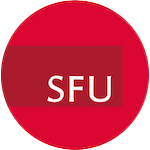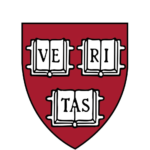Mellon Foundation Native American Scholars Initiative (NASI) Postdoctoral Career Pathways Fellowship, American Philosophical Society
The property
The American Philosophical Society's Library & Museum (APS) in Philadelphia invites applications for a two-year, residential Career Pathways Fellowship for postdoctoral scholars at any stage of their careers who would like to pursue a research project and also develop or advance their professional skills in collections care and best practices surrounding Native American and Indigenous collections in archives, libraries, and museums. This funding opportunity is part of the Native American Scholars Initiative (NASI), supported by the Mellon Foundation. Fellows will be based at the Library & Museum’s Center for Native American and Indigenous Research (CNAIR), which aims to promote greater collaboration among scholars, archives, and Indigenous communities throughout the Americas.
This 24-month fellowship is intended for a recent doctoral graduate or an independent postdoctoral scholar who is or plans to be working with Native American and Indigenous collections in an archive, library, or museum setting, especially those working closely with an Indigenous community on a project. Fellowship applications are open to scholars in any field and all periods of time. Applications from those who have lived experience or sustained personal engagement with Indigenous communities, including as a member of an Indigenous community, are particularly encouraged. Key criteria for evaluation are the caliber of the project and the articulated goals of professional training in relation to the applicant's career development. The selection committee will also take into consideration the need for the applicant to make use of collections at the APS's Library & Museum and/or other research institutions in the Philadelphia area for their project.
The purpose of this fellowship is threefold: 1) to provide scholars with training and experiences that will diversify their skillset and the opportunity to conduct and advance a scholarly research project of significance, 2) to help expand capacity at institutions in Philadelphia with rich resources in Indigenous history and culture through mutually beneficial work with a postdoctoral scholar, and 3) to create a more vibrant community for scholars and researchers focused on Native American and Indigenous Studies and allied fields in the Philadelphia-area region.
During the first year of the fellowship, the Fellow will be in residence at the APS, learning museum and archival best practices through shadowing professional staff and receiving training while also continuing with their own research. In this year, twenty percent of the Fellow’s time will be devoted to training and eighty percent of their time will be devoted to their own independent research, ideally using resources at the APS or kindred regional institutions.
During the second year of the fellowship, the Fellow will be embedded in another local institution on a project that could range from processing collections, updating descriptions to make them more accessible to wider audiences, developing programming that engages with Indigenous communities and others, or working on an exhibition. During this year eighty percent of the Fellow’s time will be devoted to their project-based work at that institution, and twenty percent of their time reserved for their own research.
The Fellow will also be expected to participate in the vibrant intellectual community at the Society, including monthly lunches at the Library with visiting scholars, daytime workshops and programming with other residential fellows, and evening programs with specialists in a wide range of fields.
[In addition, the APS's Library & Museum offers several short-term fellowships to support research using its collections. For information on the short-term fellowships visit https://www.amphilsoc.org/grants/fellowships.]
Eligibility & Qualifications
This fellowship is open to applicants anywhere in the world, including those who are not US citizens or residents, but it does not provide visa sponsorship. Applicants must have completed their doctoral degree by the beginning of the fellowship term. Applicants should have scholarly and/or personal experience with Indigenous topics or issues
Terms
This two-year Fellowship begins no later than January 1, 2025 and ends December 31, 2026. Compensation is $50,000 a year plus benefits, along with additional funds for research support, travel, and relocation. The Fellowship may not be held concurrently with any other fellowship or grant.
24 month residential fellowship
$50,000 annual salary
$5,000 travel/research fund
$750 relocation cost
Application Instructions
Applicants will submit the following materials through Interfolio (http://apply.interfolio.com/151707):
- An introductory cover letter that discusses their past work, career goals, and how the fellowship will support attaining those goals
- A 2-3 page statement describing the following the specific skills and experiences the applicant hopes to gain through the fellowship, the contributions they will bring to the APS and the local partner institution, the research project they plan to pursue during the first year of the fellowship
- A short statement, no more than one page, describing the extent of their experience working collaboratively within an Indigenous community, or as a member of an Indigenous community
- A writing sample not to exceed 25 double-space pages
- C.V.
- Two letters of recommendation that address the following questions:Does the applicant have a demonstrated interest in Native American and Indigenous Studies or allied fields? Does the applicant have a demonstrated interest in or experience with working in cultural heritage institutions in contexts not directly related to their scholarly research (i.e. through collections care, cataloging, exhibition planning, programming, or other related activities)? How would this fellowship advance their career goals?
- For those working on a community-based project, a statement of support from the Indigenous community where the project is based is strongly encouraged.
Applications due: September 23, 2024






Sorry, the comment form is closed at this time.